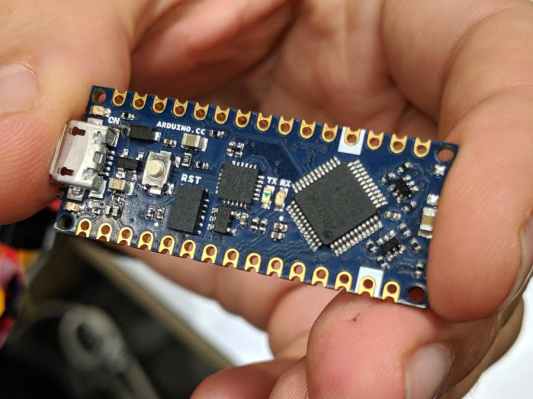Odds are if you know the name Arduino, it’s through its connection to the DIY community. Much like Raspberry Pi, the company built its reputation creating microcontrollers for hobbyists. But the last few years have seen it expanding that horizon. Last year’s Arduino Pro announcement was aimed at enterprise applications.
The initial concept offered an on-ramp for longtime Arduino tinkerers entering the workforce. It’s also aimed at moving beyond prototyping into production for runs of fewer than 100,000. That news arrived alongside a $32 million Series B. This morning, it announced a $22 million extension to that round led by CDP Venture Capital and Anzu Partners.
“The strategy that I put in place for the company is based on innovation on all levels,” CEO Fabio Violante tells TechCrunch. “Also, we had to prepare for a different kind of market when it comes to professional. It’s a different audience, different service levels the customers expect from a professional offering. We built the foundation of a different go-to-market organization within Arduino that is dedicated to professional customers.”
It’s understandably a bit of a shock to the system. Corporations looking to build products at scale have dramatically different expectations than hobbyists and educators. Providing technology to OEMs is an important piece of Arduino’s existing roadmap.
“[Manufacturers] were already using Arduinos for rapid prototyping,” Violante adds. “The original Arduino products were eight-bit microcontrollers that are not suitable for very complex tasks, with a temperature range that was made for hobbyists. So what we did was create more sophisticated products, sensors and also microcontroller boards and extend the temperature range for components, so they can actually use the physical product at the end of the day.”
In addition to ramping up R&D and go-to-work, Arduino is using the funding to expand its footprint within the U.S. and Europe (including its native Italy, where most of its manufacturing is done). The company recently opened offices in Austin and Chicago.
“The recent impact of the CHIPS Act in the U.S. and the EU Cybersecurity Act is that there is more pressure to use certain kind of components and to manufacture locally,” the CEO notes. “There is an impact. We were lucky, because we were already well-positioned to not suffer from this heavy trend of manufacturing in China.”
